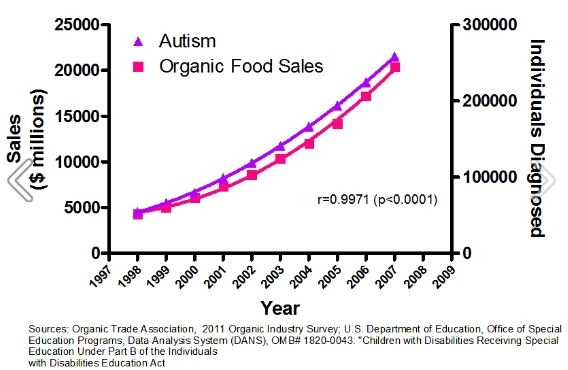How bad is sugar?
Replies
-
This whole thread is full of fail. OP should listen to Sarauk2sf and disregard the excess fail sauce sputtering out of peoples fingers with the copy/paste crap.
Sugar from fruits/veggies = Good0 -
OH MY.0
-
I request a mod to send this thread into the abyss, or oblivion, whatever...0
-
This content has been removed.
-
in for the giggles......0
-
This whole thread is full of fail. OP should listen to Sarauk2sf and disregard the excess fail sauce sputtering out of peoples fingers with the copy/paste crap.
Sugar from fruits/veggies = Good
And sugar from Ice cream = ??????
I don't know about everyone else but the Sugar in my Breyers Reese's peanut butter cup ice cream last night = Good!!0 -
Minnie sorry you got fat and refuse to take responsibility for your actions.0
-
This whole thread is full of fail. OP should listen to Sarauk2sf and disregard the excess fail sauce sputtering out of peoples fingers with the copy/paste crap.
Sugar from fruits/veggies = Good
And sugar from Ice cream = ??????
I don't know about everyone else but the Sugar in my Breyers Reese's peanut butter cup ice cream last night = Good!!
Dead Man Walkin'0 -
Sugar? It's delicious! Have you ever tried it?0
-
I lost 55 lbs drinking Maple Syrup (American made. Which is basically sugar syrup) and high fructose corn syrup directly. Its part of my complete diet.0
-
Sugar? It's delicious! Have you ever tried it?
Isn't it one of the deadly sins to like Sugar?0 -
^^Exactly this!I would not take advice from people who lost 0 pounds and have no avatar......but that is me.
Don't worry about sugar0 -
If you have the opportunity watch on YOU TUBE part on of "The men who made us fat"
It addresses this very issue Just to give you an example of the sugar industry tactics and read on you will see who the lobbyists this took place in 2003.
An example of strong arm tactics:
http://www.theguardian.com/society/2003/apr/21/usnews.foodThe sugar industry in the US is threatening to bring the World Health Organisation to its knees by demanding that Congress end its funding unless the WHO scraps guidelines on healthy eating, due to be published on Wednesday.
The threat is being described by WHO insiders as tantamount to blackmail and worse than any pressure exerted by the tobacco lobby.
In a letter to Gro Harlem Brundtland, the WHO's director general, the Sugar Association says it will "exercise every avenue available to expose the dubious nature" of the WHO's report on diet and nutrition, including challenging its $406m (£260m) funding from the US.
The industry is furious at the guidelines, which say that sugar should account for no more than 10% of a healthy diet. It claims that the review by international experts which decided on the 10% limit is scientifically flawed, insisting that other evidence indicates that a quarter of our food and drink intake can safely consist of sugar.
"Taxpayers' dollars should not be used to support misguided, non-science-based reports which do not add to the health and well-being of Americans, much less the rest of the world," says the letter. "If necessary we will promote and encourage new laws which require future WHO funding to be provided only if the organisation accepts that all reports must be supported by the preponderance of science."
The association, together with six other big food industry groups, has also written to the US health secretary, Tommy Thompson, asking him to use his influence to get the WHO report withdrawn. The coalition includes the US Council for International Business, comprising more than 300 companies, including Coca-Cola and Pepsico.
The sugar lobby's strong-arm tactics are nothing new, according to Professor Phillip James, the British chairman of the International Obesity Taskforce who wrote the WHO's previous report on diet and nutrition in 1990. The day after his expert committee had decided on a 10% limit, the World Sugar Organisation "went into overdrive", he said. "Forty ambassadors wrote to the WHO insisting our report should be removed, on the grounds that it would do irreparable damage to countries in the developing world."
Prof James was called in by the American embassy in Geneva "to explain to them why they were suddenly getting an enormous amount of pressure from the state department to have our report retracted". The sugar industry, he discovered, had hired one of Washington's top lobbying companies.
The sugar lobby was unsuccessful that time, but now, he says, "we are getting a replay, but much more powerfully based, because the food industry seems to have a much greater influence on the Bush government".
Since his 1990 report, the International Life Sciences Institute, founded by Coca-Cola, Pepsi-Cola, General Foods, Kraft and Procter and Gamble, has also gained accreditation to the WHO and the UN's Food and Agriculture Organisation.
At one point, says Prof James, "I was asked not to send any more emails about any of the dietary aspects of health that related to sugar. I was told that within 24 hours of my sending a note, the food industry would be telephoning and arranging dinners."
Aubrey Sheiham, professor of dental public health at University College, London, Medical School, said he also encountered the strength of the sugar lobby when he was one of the experts involved in putting together an EC guideline called Eurodiet.
"I wrote the sugar part of that," he said. "When we met in Crete [in June 2000], the sugar people said if the 10% [limit] was in, the whole report would be blocked. I remember we went into a huddle with various people and some of the diplomats, and we were meeting in people's bedrooms and saying, how can we work around this?"
In the end, he said, they worked out that a recommendation that nobody should eat sugar more than four times a day was equivalent to a 10% limit. But he considered the committee had been bullied.
The Sugar Association objects to the new report having been published in draft on the WHO's website for consultation purposes, without what it considers "a broad external peer-review process". It wants a full economic analysis of the impact of the recommendations on all 192 member countries. In the letter to Dr Brundtland, it demands that Wednesday's joint launch with the Food and Agriculture Organisation be cancelled.
The report, Diet, Nutrition and the Prevention of Chronic Diseases, has already been heavily criticised by the soft drinks industry, whose members sell virtually everywhere in the world, including developing countries where malnutrition is beginning to coexist with the obesity common in affluent countries.
The industry does not accept the WHO report's conclusion that sweetened soft drinks contribute to the obesity pandemic. The Washington-based National Soft Drink Association said the report's "recommendation on added sugars is too restrictive". The association backs a 25% limit.
The WHO strongly rejects the sugar lobby's criticisms. An official said a team of 30 independent experts had considered the scientific evidence and its conclusions were in line with the findings of 23 national reports which have, on average, set targets of 10% for added sugars.
In the letter to Mr Thompson, the sugar lobby relies heavily on a recent report from the Institute of Medicine for its claim that a 25% sugar intake is acceptable. But last week, Harvey Fineberg, president of the institute, wrote to Mr Thompson to warn that the report was being misinterpreted. He says it does not make a recommendation on sugar intake.0 -
^^not seeing the relevance for people who track calories.0
-
I already have cut down all the sugary items but i just can't have milk tea with out sugar!so having a spoon of sugar every day :indifferent:0
-
LOL ..so true!Sugar? It's delicious! Have you ever tried it?
Isn't it one of the deadly sins to like Sugar?0 -
How about this part of the WHO {World Health Organizations} reportThe industry does not accept the WHO report's conclusion that sweetened soft drinks contribute to the obesity pandemic. The Washington-based National Soft Drink Association said the report's "recommendation on added sugars is too restrictive". The association backs a 25% limit.
The WHO strongly rejects the sugar lobby's criticisms. An official said a team of 30 independent experts had considered the scientific evidence and its conclusions were in line with the findings of 23 national reports which have, on average, set targets of 10% for added sugars.
In the letter to Mr Thompson, the sugar lobby relies heavily on a recent report from the Institute of Medicine for its claim that a 25% sugar intake is acceptable. But last week, Harvey Fineberg, president of the institute, wrote to Mr Thompson to warn that the report was being misinterpreted. He says it does not make a recommendation on sugar intake.0 -
lots of good info here0
-
^^not seeing the relevance for people who track calories.
I cut off sugar once. I lost like 10 lbs. The fact that cutting sugar automatically reduced my intake of calorie that came with the sugar is irrelevant. All I know is that some article on the web said sugar is bad and that listening to that article caused me to lose those 10 lbs. Nothing else matters.0 -
So how about looking at it like this, you get a limited number of calories that you can consume based on your activity level and not gain weight. Why not focus on eating foods that will provide the nutrients your body needs for optimal health? Pure sugar has no nutrients at all, just calories. If you eat a lot of sugar, you will have to eat enough other food to nourish your body on top of that so you are likely to gain weight. If not then you will be undernourished. Bottom line is if you focus on nutrient dense low calorie foods as your main intake, the sugar will take care of itself ie you won't eat very much of it. Thus it almost becomes a mute point. Every time you think to put something in you mouth ask yourself "does this nourish my body or does it just provide calories that will have to be burned but provide no nutrition for all the effort it takes to burn them?" If you can't answer yes to this question then choose something else! Sugar is always a no so in a perfect world we just wouldn't eat it other than how it appears normally in wholesome, natural, healthy foods. So bottom line is choose wisely what you eat and be aware of the nutritional value of everything....the sugar takes care of itself.0
-
Umm no, over eating and lack of activity is the only cause of obesity. Too much sugar at once can cause large spikes, but so do other things like protein...I think this was previously noted. The thing is most processed sugary things, like donuts, candy, cake....they don't fill you up for long. There's not much density or protein. So therefore the feeling of fullness doesn't last as long, causing you to eat more. At the end of the day, it's the overage in calories consumed vs calories used. Seriously, what do you think would fill you up more? One average sized donut or a whole chicken breast and 2 cups of veggies? Hmm?I would rather take my advice from the professionals., I eat Fresh fruit only and leave the refined sugars, artificial sweetners, and the processed food that contains so much of the refined sugar on the shelf.
Sugar is the leading cause of obesity, not fat.
and I would keep as much refined sugar out of the diet as well as the sweetners.
My opinion,, for some people sugar is like an addiction, and speaking to them about, their sugar consumption is similar to addressing an alcoholic about his.her alcohol intake.0 -
This whole thread is full of fail. OP should listen to Sarauk2sf and disregard the excess fail sauce sputtering out of peoples fingers with the copy/paste crap.
Sugar from fruits/veggies = Good
And sugar from Ice cream = ??????
Sugar from ice cream = BEST0 -
Calories.In.Calories.Out.
Fresh Fruit = Good
Refined Sugar = Be Careful, Limit as much as you can.
As all my doctors have said over the years, watch your weight and exercise regularly. If you have medical issues, modify your diet as needed. Don't listen to all the conflicting advice. Make adjustments to your lifestyle to be healthy in a way you can maintain in the long run. Diets don't work, lifestyle changes and healthy habits work.0 -
How about this part of the WHO {World Health Organizations} reportThe industry does not accept the WHO report's conclusion that sweetened soft drinks contribute to the obesity pandemic. The Washington-based National Soft Drink Association said the report's "recommendation on added sugars is too restrictive". The association backs a 25% limit.
The WHO strongly rejects the sugar lobby's criticisms. An official said a team of 30 independent experts had considered the scientific evidence and its conclusions were in line with the findings of 23 national reports which have, on average, set targets of 10% for added sugars.
In the letter to Mr Thompson, the sugar lobby relies heavily on a recent report from the Institute of Medicine for its claim that a 25% sugar intake is acceptable. But last week, Harvey Fineberg, president of the institute, wrote to Mr Thompson to warn that the report was being misinterpreted. He says it does not make a recommendation on sugar intake.
Did you know glucose aids in cognition? Perhaps try some, as you made the leap from "sweetened soft drinks contribute to the obesity pandemic" to cause obesity 0
0 -
Does Minnie even read what she posts? It's like a "Google=Sugar" copy/pasta Tourette's thingy. The articles don't even support her ranting.0
-
Sugar from ice cream = BEST
[/quote]
^THIS0 -
"First they ignore you, then they laugh at you, then they fight you, then you win.
Mahatma Gandhi0 -
Sugar from banana should not be worrying!0
-
"First they ignore you, then they laugh at you, then they fight you, then you win.
Mahatma Gandhi
"I'm hungry and feel like eating something sweet"
Mahatma Gandhi
My quote has more relevance to the subject than your quote. Trust me. I'm Asian.0 -
Sugar from banana should not be worrying!
I am a firm believer that bananas (and the sugar from it) gives me monkey powa! And who doesn't want some monkey powah!!!0
This discussion has been closed.
Categories
- All Categories
- 1.4M Health, Wellness and Goals
- 398.2K Introduce Yourself
- 44.7K Getting Started
- 261K Health and Weight Loss
- 176.4K Food and Nutrition
- 47.7K Recipes
- 233K Fitness and Exercise
- 462 Sleep, Mindfulness and Overall Wellness
- 6.5K Goal: Maintaining Weight
- 8.7K Goal: Gaining Weight and Body Building
- 153.5K Motivation and Support
- 8.4K Challenges
- 1.4K Debate Club
- 96.5K Chit-Chat
- 2.6K Fun and Games
- 4.8K MyFitnessPal Information
- 12 News and Announcements
- 21 MyFitnessPal Academy
- 1.6K Feature Suggestions and Ideas
- 3.2K MyFitnessPal Tech Support Questions

















